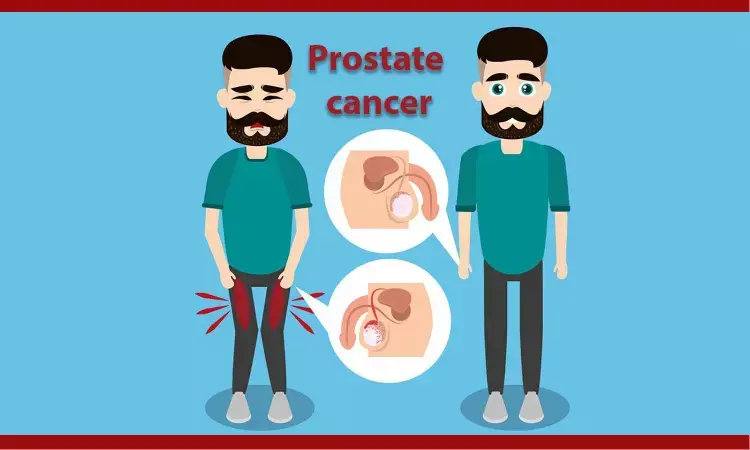- Home
- Medical news & Guidelines
- Anesthesiology
- Cardiology and CTVS
- Critical Care
- Dentistry
- Dermatology
- Diabetes and Endocrinology
- ENT
- Gastroenterology
- Medicine
- Nephrology
- Neurology
- Obstretics-Gynaecology
- Oncology
- Ophthalmology
- Orthopaedics
- Pediatrics-Neonatology
- Psychiatry
- Pulmonology
- Radiology
- Surgery
- Urology
- Laboratory Medicine
- Diet
- Nursing
- Paramedical
- Physiotherapy
- Health news
- Fact Check
- Bone Health Fact Check
- Brain Health Fact Check
- Cancer Related Fact Check
- Child Care Fact Check
- Dental and oral health fact check
- Diabetes and metabolic health fact check
- Diet and Nutrition Fact Check
- Eye and ENT Care Fact Check
- Fitness fact check
- Gut health fact check
- Heart health fact check
- Kidney health fact check
- Medical education fact check
- Men's health fact check
- Respiratory fact check
- Skin and hair care fact check
- Vaccine and Immunization fact check
- Women's health fact check
- AYUSH
- State News
- Andaman and Nicobar Islands
- Andhra Pradesh
- Arunachal Pradesh
- Assam
- Bihar
- Chandigarh
- Chattisgarh
- Dadra and Nagar Haveli
- Daman and Diu
- Delhi
- Goa
- Gujarat
- Haryana
- Himachal Pradesh
- Jammu & Kashmir
- Jharkhand
- Karnataka
- Kerala
- Ladakh
- Lakshadweep
- Madhya Pradesh
- Maharashtra
- Manipur
- Meghalaya
- Mizoram
- Nagaland
- Odisha
- Puducherry
- Punjab
- Rajasthan
- Sikkim
- Tamil Nadu
- Telangana
- Tripura
- Uttar Pradesh
- Uttrakhand
- West Bengal
- Medical Education
- Industry
Triple drug combo prolongs survival in men with metastatic, hormone-sensitive prostate cancer

Results from an international, randomized, double-blind, placebo-controlled, phase 3 clinical trial indicate that adding the androgen-receptor inhibitor darolutamide to androgen-deprivation therapy and chemotherapy prolongs the survival of men with metastatic, hormone-sensitive prostate cancer, a disease that is fatal in most cases. The study, which was conducted by a team led by investigators at Massachusetts General Hospital (MGH), is published in the New England Journal of Medicine.
Standard treatment for patients with metastatic, hormone-sensitive prostate cancer includes the addition of either the chemotherapy drug docetaxel or an androgen-receptor pathway inhibitor to androgen-deprivation therapy, with the latter two treatments acting to lower the effects of androgen hormones, such as testosterone. Clinical trials that have combined all three treatments have generated conflicting results. To provide clarity, investigators designed the large, international ARASENS Trial and randomly assigned 1,306 patients with metastatic, hormone-sensitive prostate cancer in a 1:1 ratio to receive the oral androgen-receptor inhibitor darolutamide or placebo, both in combination with androgen-deprivation therapy and docetaxel.
Survival rates in the two groups were compared after 533 patients had died. Patients were followed for a median of approximately 3.5 years, and those who received darolutamide had a 32.5% lower risk of dying during that time than patients not taking darolutamide. Patients taking darolutamide also experienced greater delays in developing castration-resistant prostate cancer (which no longer responds to treatments that lower testosterone), pain, and the need for other anti-cancer therapies. The combination of three medications did not result in more toxic effects compared with the combination of androgen-deprivation therapy and docetaxel alone.
"Despite progress in recent years, survival is short for patients with metastatic prostate cancer. Results from ARASENS are an important step forward, and triplet therapy with darolutamide should become a new standard of care for the treatment of patients with metastatic hormone-sensitive prostate cancer," says lead author Matthew R. Smith, MD, PhD, director of the Genitourinary Oncology Program at the Mass General Cancer Center and an associate professor of medicine at Harvard Medical School.
Hina Zahid Joined Medical Dialogue in 2017 with a passion to work as a Reporter. She coordinates with various national and international journals and association and covers all the stories related to Medical guidelines, Medical Journals, rare medical surgeries as well as all the updates in the medical field. Email: editorial@medicaldialogues.in. Contact no. 011-43720751
Dr Kamal Kant Kohli-MBBS, DTCD- a chest specialist with more than 30 years of practice and a flair for writing clinical articles, Dr Kamal Kant Kohli joined Medical Dialogues as a Chief Editor of Medical News. Besides writing articles, as an editor, he proofreads and verifies all the medical content published on Medical Dialogues including those coming from journals, studies,medical conferences,guidelines etc. Email: drkohli@medicaldialogues.in. Contact no. 011-43720751


